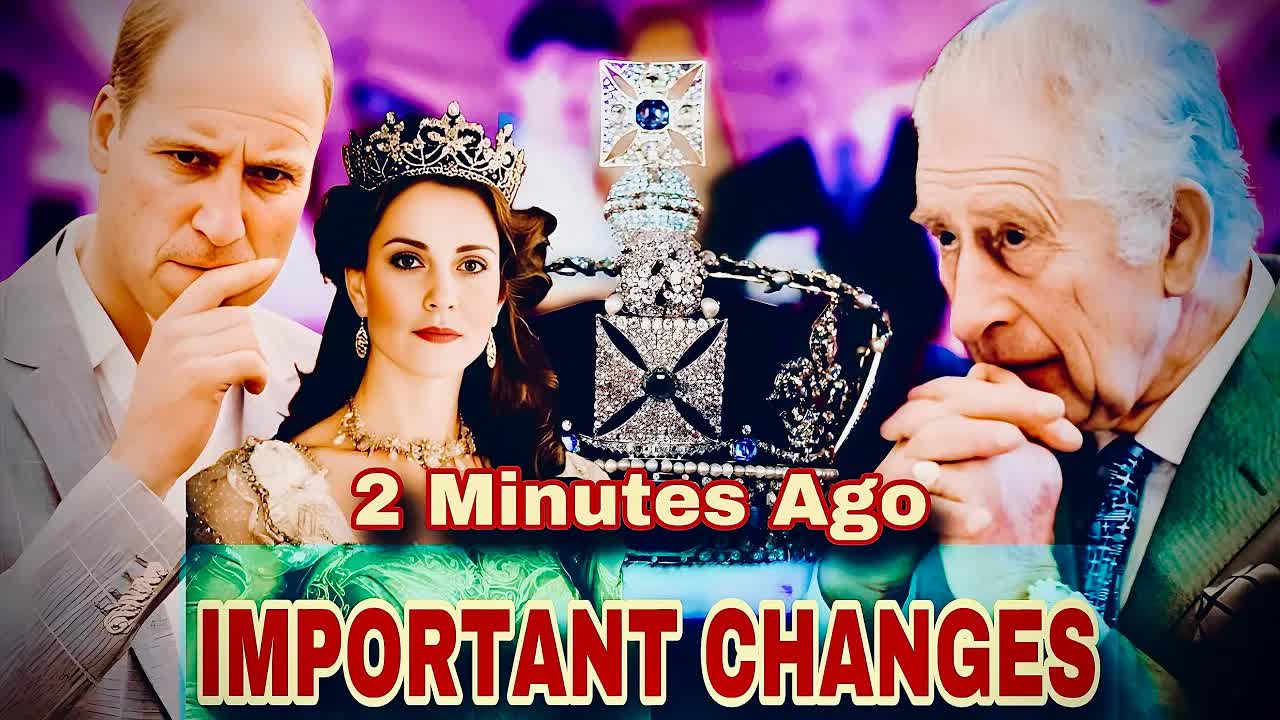In a time of significant upheaval, the British monarchy is poised for transformation as King Charles III and Prince William chart a new course.
The recent health struggles faced by Catherine, Princess of Wales, have prompted a reevaluation of royal duties and responsibilities, stirring discussions about the future of the monarchy.
Royal insiders reveal that King Charles is planning a Royal Conference to deliberate on this pivotal moment, focusing on the roles of the royal family in a modern context.
As the monarch navigates his own cancer treatment, he has shown remarkable resolve, stepping into the public eye to ease concerns about Princess Catherine, who is also undergoing chemotherapy.
This shared battle against illness has forged a deeper bond between the King and the Princess, with Charles viewing her not merely as a daughter-in-law but as a beloved daughter.
His affection for her is evident, particularly as she prepares to support him and Prince William during the Trooping the Colour ceremony.
Sources close to the royal family suggest that King Charles is determined to prioritize the Commonwealth in his reign, aiming to fulfill the wishes of his late mother, Queen Elizabeth II.
He sees Princess Catherine’s star power as instrumental in uniting the Commonwealth and enhancing the monarchy’s appeal.
The King’s strategy hinges on leveraging her popularity, which has been bolstered by her undeniable charisma and connection with the public.
Amidst these developments, Charles and William are reportedly engaged in confidential discussions about the future succession of the monarchy.
Royal analyst Tom Quinn indicates that the King recognizes the importance of preparing Prince William for his eventual role as monarch.
However, there are growing concerns regarding the severity of King Charles’ health, with some analysts suggesting that the situation may be more critical than previously disclosed.
Criticism has surfaced regarding Prince Harry‘s potential involvement in succession planning, with experts labeling him as unreliable due to his past actions.
They caution that any confidential discussions could easily find their way into the media, undermining the royal family’s efforts to maintain discretion during this sensitive period.
Prince William has expressed his desire to streamline the monarchy, reflecting a modern approach to royal duties.
As he steps further into his role as the next in line, he envisions a future where the royal family mirrors the more compact structures seen in some European monarchies.
This vision aligns with his belief that a leaner monarchy could better serve the public’s expectations and needs.
Recent royal events, such as the Trooping the Colour, have highlighted this shift, with fewer family members appearing on the Buckingham Palace balcony.
This move signals a desire for a more focused royal presence, one that prioritizes the working members of the family.
Reports suggest that William intends to limit invitations to only those actively involved in royal duties, indicating a departure from traditional practices.
The pressures of royal life have not gone unnoticed, especially as both King Charles and Princess Catherine grapple with their health challenges.
The emotional toll on Prince William has been significant, with sources revealing that he had anticipated a different pace of life for himself and Catherine.
The weight of leadership is heavy, particularly as he navigates these changes while supporting his family.
Historically, the British monarchy has undergone various transformations, especially following the tragic death of Princess Diana.
The monarchy’s evolution has been marked by a need to adapt to public sentiment, a lesson that remains relevant today as Charles seeks to modernize the institution.
The legacy of his mother looms large, and the challenge of maintaining the monarchy’s relevance in a rapidly changing world is paramount.
Financial scrutiny continues to surround the royal family, with debates about its cost versus its contributions to the economy.
While the monarchy incurs substantial expenses, economists argue that it generates significant revenue for the UK, leading to ongoing discussions about its role in society.
King Charles is aware of these complexities and may consider selling some royal assets as a symbolic gesture of alignment with contemporary values.
As King Charles embarks on this new chapter, his commitment to environmentalism and social issues will play a crucial role in shaping the monarchy’s future.
His previous charitable work demonstrates a willingness to engage with pressing societal issues, which could resonate with younger generations.
The monarchy’s ability to adapt and remain relevant hinges on its capacity to connect with the public’s aspirations and concerns.
Looking ahead, the future of the monarchy remains uncertain.
While King Charles is likely to have a shorter reign than his mother, the institution itself may endure beyond his time.
The question remains: can the monarchy continue to thrive in a landscape that is increasingly critical of its relevance?
Only time will tell, as the royal family navigates its way through these unprecedented challenges and opportunities.










